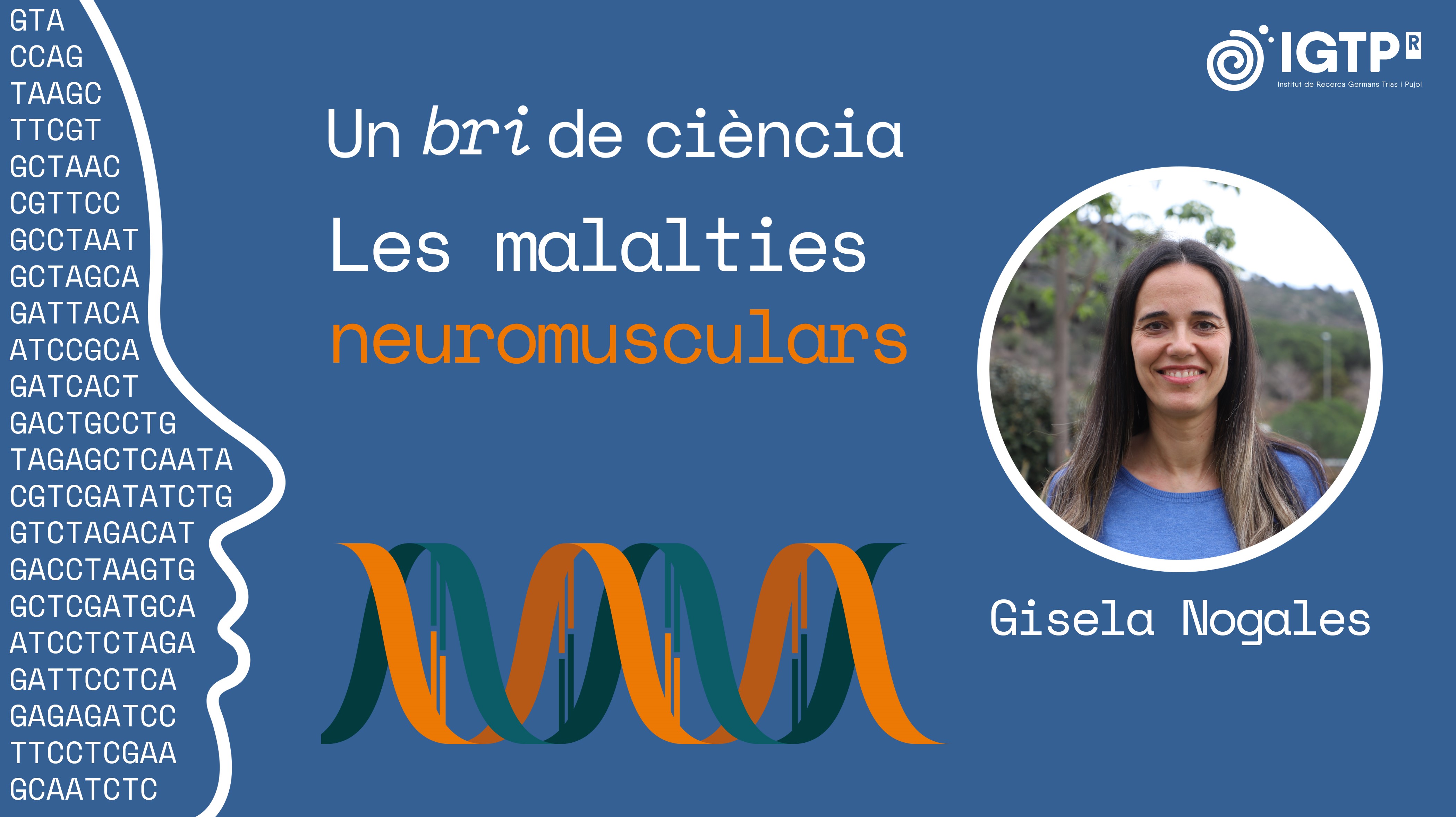The podcast 'Un bri de ciència' addresses neuromuscular diseases on World Rare Disease Day

Today, 29 February, coinciding with World Rare Disease Day, the Germans Trias i Pujol Research Institute (IGTP) launches a new episode of its podcast 'Un bri de ciència'. Researcher Gisela Nogales discusses her projects on neuromuscular diseases and emphasises her commitment to supporting patients and providing solutions.
Rare diseases are those that affect less than one person in every 2,000 inhabitants. Recent studies suggest that they may exceed 10,000 and affect between 5 and 10% of the population. These conditions are characterized by a lack of scientific knowledge and, in most cases, are still incurable. Therefore, research in this field is crucial, as advancements can significantly improve the quality of life for patients.
Among rare diseases are neuromuscular disorders, which affect peripheral nerves, muscles, and neuromuscular junctions. The vast majority have genetic causes and present a variety of symptoms, often related to muscle weakness.
In episode 5 of the podcast 'Un bri de ciència', Gisela Nogales Gadea, leader of the Group of Research in Neuromuscular Diseases from Badalona (GRENBA) at IGTP, focuses on Steinert myotonic dystrophy and McArdle's disease. The researcher presents some of the projects her group is undertaking, including diagnostic strategies, monitoring, and predicting treatment response; and collaborations with Arthex, the University of Valencia, the Asociación Española de Enfermos de Glucogenosis (AEEG), and primary care.
She also explains how her team actively participates in initiatives to bring research closer to the public and raise funds with the help of the Acció per Badalona platform. Last Sunday, 25 February, they celebrated once again the Charity Run for Rare Diseases.
Nogales highlights a collaboration of her group with Fundación Èpica La Fura dels Baus at the end of 2019. GRENBA was part of the expert group that helped set up the "Sistemas complejos" workshop, where half of the participants had to live with the limitations of people with ALS or FSH and the other half assist them.
The podcast contributes to the awareness and dissemination objectives of the Germans Trias i Pujol Research Institute. This project ensures that the leading research at the Can Ruti Campus reaches a wide and diverse audience.
You can listen to the episode on Spotify, iVoox, Google Podcasts, and Apple Podcasts.
